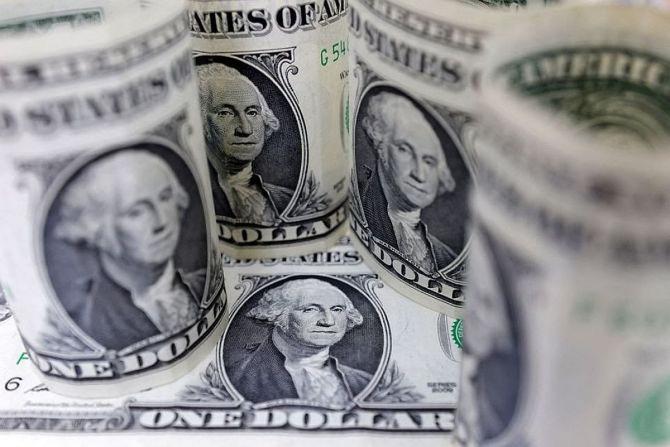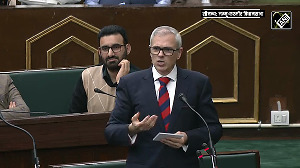Exchange-traded currency derivatives volumes are likely to drop in view of new Reserve Bank of India (RBI) rules, casting a cloud over further participation of retail investors and proprietary traders.

There are concerns that existing positions without any underlying exposure will need to be liquidated.
Also, weighed down by dollar demand from local oil companies and weakness in its Asian peers, the rupee on Wednesday (April 3) ended at a new closing low of 83.44 versus the US currency.
The RBI issued a circular on January 5, 2024, effective from April 5, specifying that rupee-denominated currency contracts traded on the National Stock Exchange (NSE) and the BSE now require underlying exposure.
Though traders are not required to provide evidence of underlying exposure for positions up to $100 million, they must confirm the existence of such exposure.
Currency futures transactions were primarily driven by the retail segment, which could not transact in over-the-counter (OTC) markets as banks typically demanded proof of underlying exposure.
Retail trades account for over 60 per cent of total transactions and significantly contribute to overall liquidity on currency derivatives exchanges.
When currency futures trading began in August 2008, the RBI allowed transactions in dollar/rupee currency futures for hedging foreign exchange rate risks or other purposes.
According to industry sources, over four large brokers have sent directives and communications to their clients for submitting declarations.
Traders with small exposure are required to declare that they are trading currencies to hedge their contracted exposure.
The volume will fall because we don t have speculators in the market; we just have hedgers.
The purpose of match-making just gets defeated because if we don t have speculators, who will take the risk, said Hitesh Jain, strategist at YES Securities.
Any mature market requires both commercials and non-commercials, otherwise the price discovery goes for a toss.
Traders with exposure higher than $100 million will need to appoint a custodian participant or an authorised dealer.
The average daily turnover (ADTV) on all three bourses offering currency derivatives has fallen sharply this month.
The ADTV for the NSE in April (until April 3, 2024) is Rs 87,045 crore, down 44 per cent over March's ADTV of Rs 1.56 trillion.
Meanwhile, ADTV for the BSE is down 21 per cent to Rs 4,878 crore, while that for the MSE is down 97 per cent to Rs 46 crore.
The exchange saw a sharp decline in options in currency derivatives, with only 7,968 contracts traded in 9MFY24 against 88,193 contracts traded in the year-ago period.
The number of futures contracts also declined.
Stockbroker Zerodha has asked its clients to submit the declaration if they want to take a fresh position or close any open positions in currency derivatives.
Sources said that the exchanges plan to conduct surveillance of stockbrokers to check if all clients are trading with underlying exposure once the RBI circular becomes effective.
I have said this before, regulatory risk is by far the biggest risk for stockbrokers, Nitin Kamath, founder & CEO of Zerodha, posted on social media.
The RBI has its own reasons for restricting unhedged currency derivatives, but this means the death of currency derivatives trading on stock exchanges by retail traders.
Amit Pabari, managing director at CR Forex, said: Following yesterday s (Tuesday s) initial guidance from a few brokers to either comply with the mandate or close out positions, today (Wednesday) saw a flurry of brokers rushing to adhere to the guidelines and advising clients to do the same.
Given that proprietary traders and individual investors account for approximately 65 per cent to 80 per cent of the turnover, any sudden regulatory changes naturally induce panic.
he option premia over the exchange rate, spanning from the near term to three months, saw a significant spike compared to yesterday's (Tuesday' s) levels.
This volatility also impacted the interbank spot rate, Pabari added.
Meanwhile, the rupee settled at a fresh closing low of 83.44 against the greenback.
The previous record closing low was on March 22, 2024, when the rupee settled at 83.43 per dollar.
The local currency had witnessed a record low of 83.48 (intraday) against the dollar on November 10, 2023.
The rise in US Treasury yields and crude oil prices further weighed on the local currency.












 © 2025
© 2025